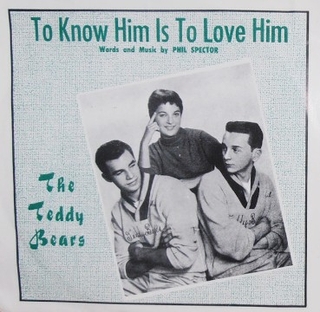A gravestone is a marker, usually stone, that is placed over a grave.
Gravestone or Gravestones can also refer to:
- Gravestone (band), a German heavy metal band
- "Gravestones" (song), a song by Hawthorne Heights from their 2010 album Skeletons
A gravestone is a marker, usually stone, that is placed over a grave.
Gravestone or Gravestones can also refer to:
Cinema may refer to:
Stress may refer to:

Nickelback is a Canadian rock band formed in 1995 in Hanna, Alberta. It is composed of lead guitarist and lead vocalist Chad Kroeger, rhythm guitarist/keyboardist/backing vocalist Ryan Peake, bassist Mike Kroeger, and drummer Daniel Adair. It went through several drummer changes between 1995 and 2005.

A gravestone or tombstone is a marker, usually stone, that is placed over a grave. A marker set at the head of the grave may be called a headstone. An especially old or elaborate stone slab may be called a funeral stele, stela, or slab. The use of such markers is traditional for Chinese, Jewish, Christian, and Islamic burials, as well as other traditions. In East Asia, the tomb's spirit tablet is the focus for ancestral veneration and may be removable for greater protection between rituals. Ancient grave markers typically incorporated funerary art, especially details in stone relief. With greater literacy, more markers began to include inscriptions of the deceased's name, date of birth, and date of death, often along with a personal message or prayer. The presence of a frame for photographs of the deceased is also increasingly common.
This may refer to:

Wilbur Joe "Kansas Joe" McCoy was an American Delta blues singer, musician and songwriter.

Hawthorne Heights is an American rock band from Dayton, Ohio, formed in 2001. Originally called A Day in the Life, their lineup currently consists of JT Woodruff, Matt Ridenour, Mark McMillon, and Chris Popadak.

"Teenage Kicks" is the debut single by Northern Irish punk rock band the Undertones. Written in the summer of 1977 by J.J. O'Neill, the band's rhythm guitarist and principal songwriter, the song was recorded on 15 June 1978 and initially released that September on independent Belfast record label Good Vibrations, before the band signed to Sire Records on 2 October 1978. Sire Records subsequently obtained all copyrights to the material released upon the Teenage Kicks EP and the song was re-released as a standard vinyl single on Sire's own label on 14 October that year, reaching number 31 in the UK Singles Chart two weeks after its release

The Fray is an American rock band from Denver, Colorado, formed in 2002 by schoolmates Isaac Slade and Joe King. Their debut studio album, How to Save a Life (2005) was released by Epic Records and received quadruple platinum certification by the Recording Industry Association of America (RIAA), as well as platinum certification in Australia, Canada, New Zealand and the United Kingdom. Its release was supported by their first hit single, "Over My Head ", which peaked at number eight on the Billboard Hot 100. The band saw their furthest success with its follow-up, "How to Save a Life", which peaked at number three on the chart and was also a hit in Australia, Canada, Ireland, Italy, Spain, Sweden and the United Kingdom. Both songs received Grammy Award nominations: Best Pop Performance by a Duo or Group with Vocals, and Best Rock Performance by a Duo or Group, respectively.

The Mary Ellis grave is a grave located behind an AMC Theatre on U.S. Route 1 in New Brunswick, Middlesex County, New Jersey, United States. The granite gravestone is located on a 7-foot (2.1 m) high stonework pyramid in the back parking lot. Seven relatives are also buried and marked on the grave itself.

Stephen John Harrington, known professionally as Steve Strange, was a Welsh singer. From the late 1970s, he was a nightclub host and promoter. He became famous as the leader of the new wave synth-pop group Visage, best known for their single "Fade to Grey", and was one of the most influential figures behind the New Romantic movement of the early 1980s.
John William Cann, later known by his stage name John Du Cann, was an English guitarist primarily known through his work in the 1970s band Atomic Rooster.

Jackie Brenston was an American singer and saxophonist who, with Ike Turner's band, recorded the first version of "Rocket 88" in 1951.

Claudio Villa was an Italian singer and actor.

"To Know Him Is to Love Him" is a song written by Phil Spector, inspired by the words on his father's gravestone, "To Know Him Was to Love Him". It was first recorded by the only vocal group of which he was a member, The Teddy Bears. The single spent three weeks at No. 1 on the Billboard Hot 100 chart in 1958, while reaching No. 2 on the UK's New Musical Express chart. Peter & Gordon and Bobby Vinton later each experienced chart success with the song, in 1965 and 1968, respectively.

Aron Erlichman, better known by his stage name Deuce, is an American rapper, music producer and guitarist. Brought to fame as a member of the rap rock band Hollywood Undead, Deuce departed from Hollywood Undead in 2010 and has since moved on to solo work through the label "Five Seven Music", a branch of Eleven Seven Music. He was formerly involved in a movement with fellow rapper Truth called "Nine Lives". Deuce released his debut album of the same name on April 24, 2012, which sold 11,425 copies in its first week. Deuce has also collaborated with artists NXTREADY, Ronnie Radke, Brokencyde and Blood on the Dance Floor.

Nine Lives is the debut studio album by former Hollywood Undead rapper Deuce. The album was released on April 24, 2012, through 10th Street Entertainment. The album uses both new songs, remake versions, and demo songs recorded following Deuce's departure from Hollywood Undead in early 2010.

"Death of Samantha" is a song written by Yoko Ono and first released on her 1973 album Approximately Infinite Universe. It was also released as a single, backed by "Yang Yang". It has also been covered by a number of artists, including Boy George, Hermine Demoriane and Porcupine Tree.

The Bandito Tour is the sixth concert tour by the American musical duo Twenty One Pilots, in support of their fifth studio album Trench (2018). The tour began at the Bridgestone Arena in Nashville, Tennessee on October 16, 2018, and concluded at the Aragon Ballroom in Chicago, Illinois on December 13, 2019. An additional tour date was scheduled for June 24, 2020, in Dublin, Ireland, before it was cancelled due to the COVID-19 pandemic.
"Neon Gravestones" is a song by American musical duo Twenty One Pilots. It is the seventh track from their fifth studio album, Trench (2018). Tyler Joseph, the frontman of the band, wrote the song and produced it with Paul Meany. It is a hip hop piano ballad which confronts the glorification of suicide by media.